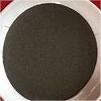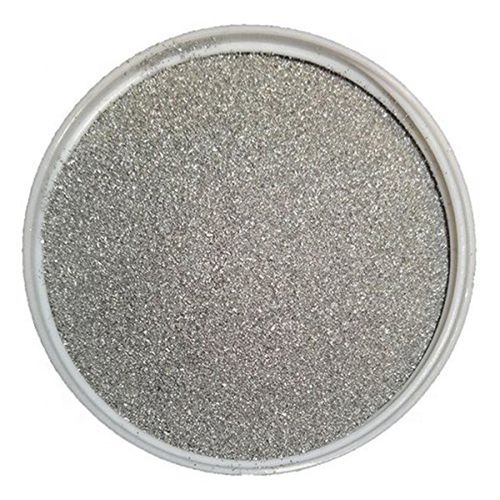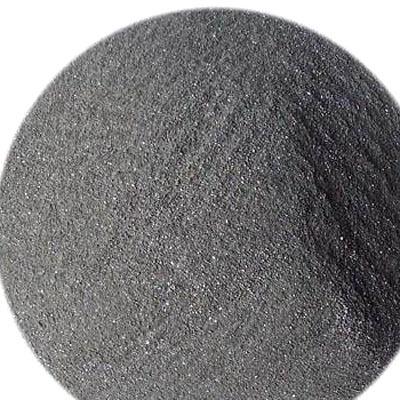Overview of SIC Silicon Carbide Ceramic Coil Insulator Housings
Silicon Carbide (SiC), also known as carborundum, is a synthetic ceramic compound made up of silicon and carbon atoms. Known for its exceptional hardness, thermal conductivity, and resistance to chemical reactions and wear, SiC is a versatile material widely used in high-performance applications that demand superior physical and electronic properties. Its unique crystal structure, which can exist in several polytypes, contributes to its multifaceted utility across various industries.
Features of SIC Silicon Carbide Ceramic Coil Insulator Housings
-
Exceptional Hardness: Silicon carbide ranks just below diamond and boron carbide in hardness, making it an ideal abrasive material.
-
High Thermal Conductivity: It is an excellent heat conductor, capable of dissipating heat rapidly, which is crucial for high-power electronic and semiconductor devices.
-
Chemical Stability: Resistant to most acids, alkalis, and salt solutions, SiC maintains its properties even under harsh chemical environments.
-
Wide Bandgap Semiconducting Material: As a wide bandgap semiconductor, it operates at higher temperatures and frequencies than conventional semiconductors like silicon.
-
Mechanical Strength and Wear Resistance: Offers high mechanical strength and excellent wear resistance, suitable for mechanical seals, bearings, and pump components.
-
Thermal Shock Resistance: Can withstand rapid temperature changes without cracking or degrading, important for applications involving cyclic heating and cooling.

(SIC Silicon Carbide Ceramic Coil Insulator Housings)
Parameters of SIC Silicon Carbide Ceramic Coil Insulator Housings
Silicon carbide ceramic coil insulators (SCCI) are highly reliable and cost-effective insulators for electronic devices such as transistors, resistors, and integrated circuits. The performance of SCCI can be improved by incorporating various parameters in the design process. The following are some of the most commonly used parameters that affect the behavior of SCCI:
1. Type: The type of SCCI used affects its resistance to voltage fluctuations, temperature changes, and frequency variations. Types such as burying, contact, and block have different properties.
2.Die: The die determines how the SCCI is processed during assembly. The width and depth of the die plate determine the size and shape of the SCCI.
3. Paperridge: The paperridge determines the degree of restriction on the flow of electricity through the SCCI. A high paperridge results in higher resistance due to the presence of a moisture-content drop.
4. Cylinders: The number of cylinders of the SCCI affects its capacitance and efficiency. Higher cylinder counts result in greater capacitance and more efficient operation.
5. Resistance coatings: Resistance coatings can significantly improve the performance of SCCI. Applications include microcontrollers, solar cells, and nuclear reactors.
6. Insulation films: Insulation films provide additional protection against noise and electromagnetic interference. They can also enhance the film’s resistance to thermal stress and temperature fluctuations.
7. Temperature stability: The temperature stability of SCCI is important to ensure reliable operation under different operating conditions. Technologies such as temperature controlled storage systems and temperature-controlled shutdown mechanisms help achieve this.
8. Kinetics: Kinetics refers to the forces required to move an object over a specified distance or velocity. It plays a crucial role in determining the energy consumption and power requirements of SCCI.
9. Application-specific properties: The application-specific properties of SCCI depend on the application being used. For instance, SCCI with high current-coupling capabilities can be useful in power electronics applications, while SCCI with low current-coupling capabilities may be better suited for medical devices.
By incorporating these parameters into the design process, engineers can create SCCIs that meet specific performance requirements, reduce their cost, and increase their reliability.

(SIC Silicon Carbide Ceramic Coil Insulator Housings)
Applications of SIC Silicon Carbide Ceramic Coil Insulator Housings
-
Semiconductor Devices: Used in high-voltage, high-frequency, and high-temperature power electronics, such as MOSFETs, Schottky diodes, and power modules.
-
Abrasive Materials: As an abrasive grain in grinding wheels, sandpapers, and cutting tools due to its hardness and wear resistance.
-
Refractories and Furnace Linings: In high-temperature furnaces and kilns because of its outstanding thermal stability and resistance to corrosion.
-
Ceramic Armor: In lightweight armor systems due to its combination of hardness, toughness, and low density.
-
Chemical Process Equipment: For pumps, valves, and seals in corrosive chemical environments where metals would corrode.
-
Wire Sawing: As the abrasive medium in wire saws for slicing silicon wafers in the semiconductor industry and gemstones.
Company Profile
MyCarbides is a trusted global chemical material supplier & manufacturer with over 12-year-experience in providing super high-quality carbides and relative products.
The company has a professional technical department and Quality Supervision Department, a well-equipped laboratory, and equipped with advanced testing equipment and after-sales customer service center.
If you are looking for high-quality carbide materials and relative products, please feel free to contact us or click on the needed products to send an inquiry.
Payment Methods
L/C, T/T, Western Union, Paypal, Credit Card etc.
Shipment
It could be shipped by sea, by air, or by reveal ASAP as soon as repayment receipt.
FAQs of SIC Silicon Carbide Ceramic Coil Insulator Housings
Q: How is SIC Silicon Carbide Ceramic Coil Insulator Housings produced?
A: SIC Silicon Carbide Ceramic Coil Insulator Housings is primarily synthesized through the Acheson process, which involves heating a mixture of silica sand and carbon (usually in the form of coke) in an electric furnace at high temperatures.
Q: Is SIC Silicon Carbide Ceramic Coil Insulator Housings conductive?
A: Yes, SIC Silicon Carbide Ceramic Coil Insulator Housings is a semiconductor material with unique electronic properties, including high breakdown voltage and thermal conductivity, making it suitable for power electronics.
Q: Can SIC Silicon Carbide Ceramic Coil Insulator Housings be used in extreme environments?
A: Absolutely, SiC’s high temperature stability, resistance to radiation damage, and ability to withstand thermal shocks make it ideal for applications in space, nuclear reactors, and deep-well drilling.
Q: What gives SIC Silicon Carbide Ceramic Coil Insulator Housings its unique properties?
A: The covalent bond structure of SIC Silicon Carbide Ceramic Coil Insulator Housings, along with its tight crystal lattice, contributes to its hardness, high melting point, and resistance to wear and corrosion.
Q: Is SIC Silicon Carbide Ceramic Coil Insulator Housings biocompatible?
A: SSIC Silicon Carbide Ceramic Coil Insulator Housings has been investigated for biomedical applications due to its biocompatibility, inertness, and durability, with potential uses in orthopedic implants and surgical instruments.

(SIC Silicon Carbide Ceramic Coil Insulator Housings)




